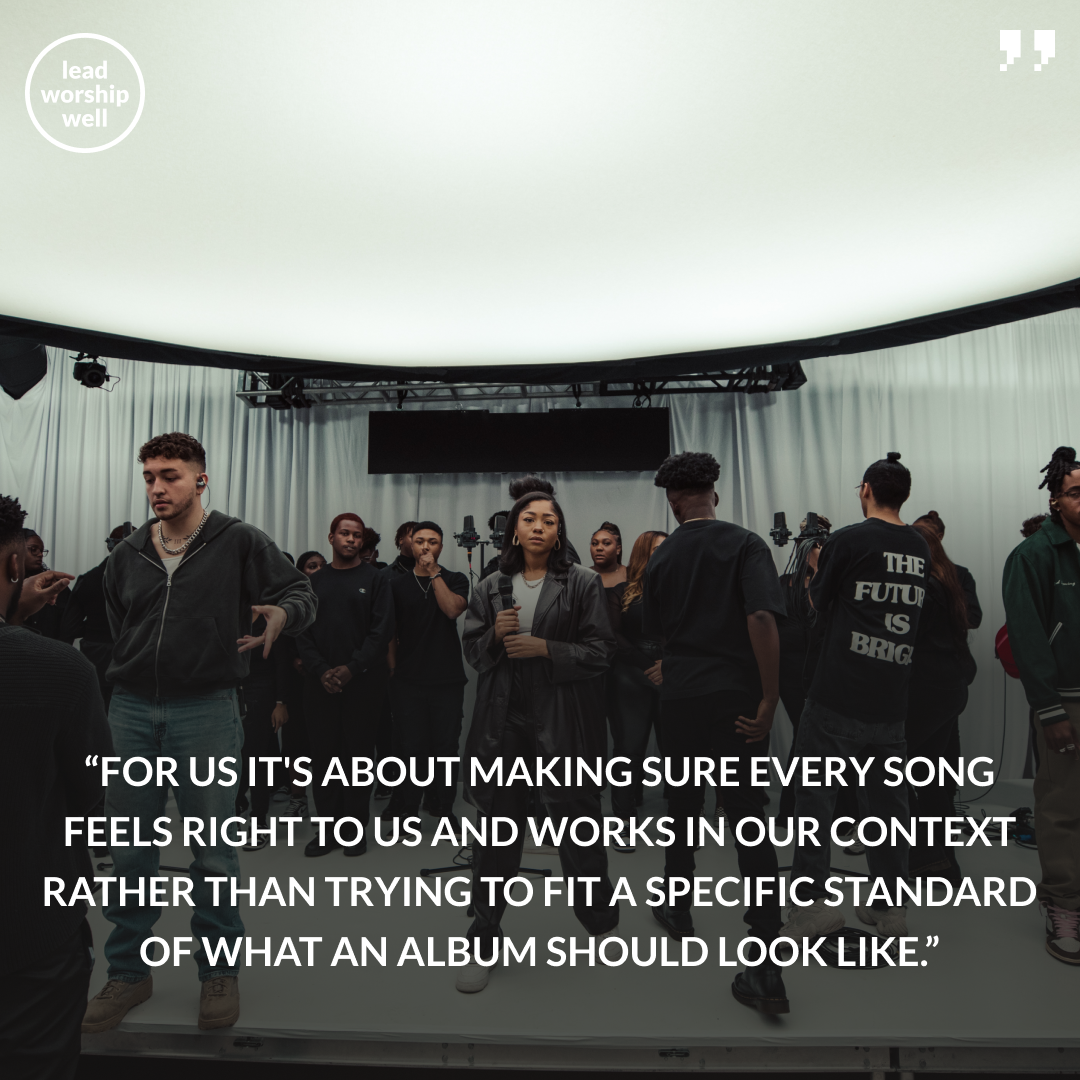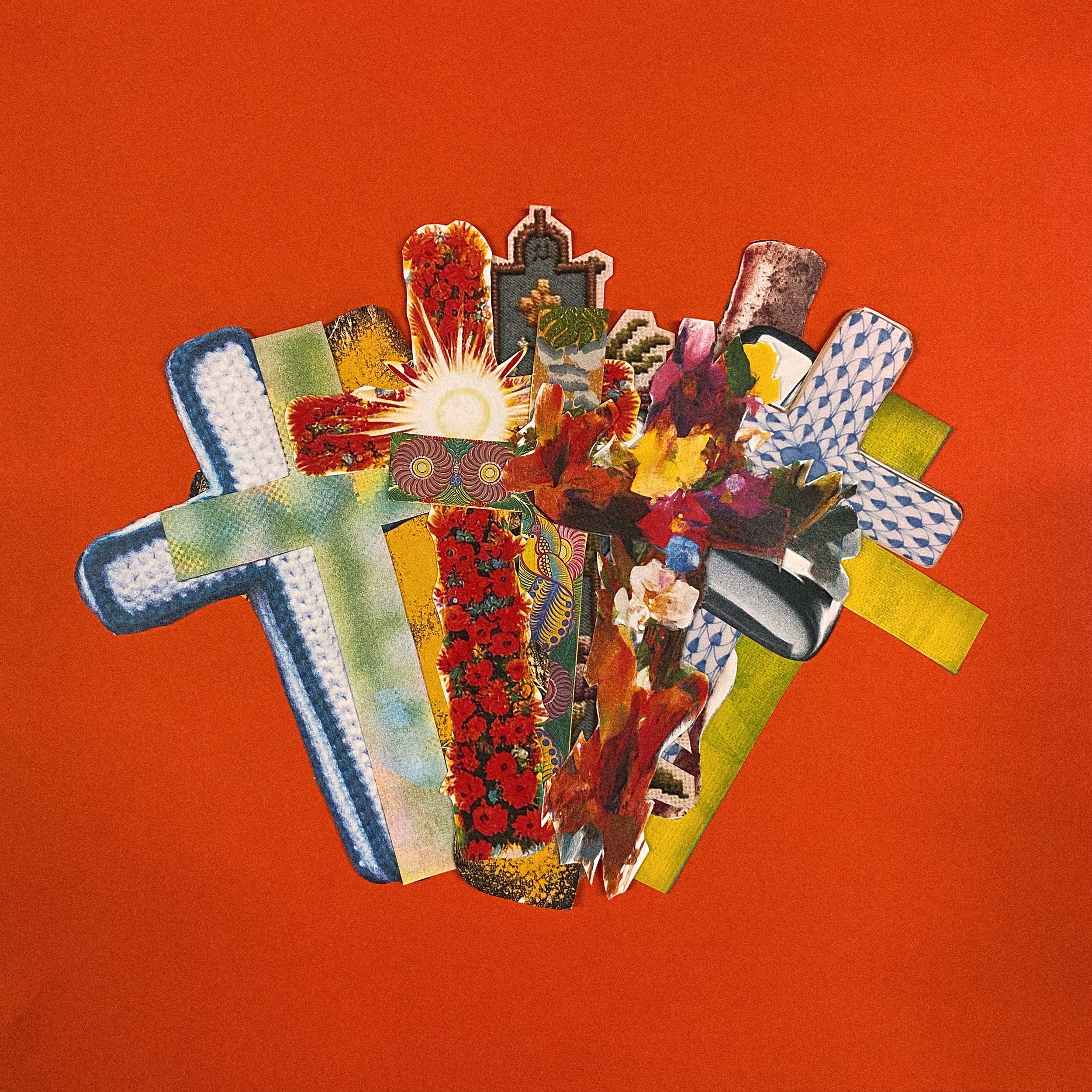ELEVATION RHYTHM
With youth and young adults at the forefront of their mission, ELEVATION RHYTHM believes in writing and recording songs with a variety of bold sounds, textures, and genres. In doing so, they aim to create a space for those searching for purpose, identity, and acceptance to encounter Jesus.
Josh Holiday shares about their new album, This Is The Gospel, and how it focuses on biblical truths.
Tell us about the album opener “Good News,” which serves as almost an overture. There’s a lot going on: there are production elements, a voiceover, a gospel choir, and more. It really creates this powerful, anticipatory atmosphere.
I actually made that during a Rhythm Offsite! I had taken the team to this cabin in the mountains for the weekend and one morning while we were there I woke up with the idea for this track!
We had already recorded the album but I knew I wanted an intro. An intro that sonically represented the Bible.
There are 3 parts to this opener. The beginning has this feeling of stars being created and a garden growing, it represents the creation of life.
The middle part has the feeling of a journey beginning. And the end is the sound of the return of the King!
The voice over is actually an nyc street preacher. I found a YouTube video of him preaching and I used his message to narrate those 3 parts!
You said about this release: “I just knew this next album had to be truth-centered, and I wanted to create music that was going to be foundational for this next generation in their faith journey.” What aspects of the Truth specifically were dwelled on / prayed over in the writing process?
I wanted to focus on some of the pillars of our faith.
One, Jesus died for our sins! Two, we are loved. Three, if we believe in Jesus and confess that He is Lord we will spend eternity with Him!
These are some of the truths that we focused on while writing and creating the album.
And this may be hard to choose, but if you could pick one song for someone in the generation following yours to hear, what would it be and why?
I would choose “Streetlights.” This song focuses on the feeling of being lost and wanting to experience life again and feel loved again.
It's a reminder that you can always run home to the Father no matter where you are or how far you’ve gone.
When you all were at MultiTracks capturing sessions versions, we talked about how there are more members of RHYTHM than people may think. Tell us about the purpose behind that - of not necessarily having a “face” of the group.
RHYTHM is more than just a traditional worship group.
We are a movement for the next and the NOW generation.
We have core people who take on leadership responsibilities within our team but, RHYTHM is bigger than any of us. We never want to limit what RHYTHM can be by making one person or a few people the “face.”
A few years from now someone who was in high school when TITG came out could be coming here to MultiTracks singing songs for their next generation.
Though our foundation will remain, RHYTHM will continue to evolve and develop because we live in an ever evolving world.
I’d love to close with talking about the title track. There is so much joy in this song and the arrangement feels like it’s simultaneously from the past and the future.
“This Is The Gospel” was a song we wrote at our first writing camp for this album! We had the drums, choir and lyrics all done in that session! It was one of those songs that we knew how we wanted it to sound live from day 1!
Once we got that band around it and connected with a local college gospel choir the song came to life even more! Every time we do that song there is an instant feeling of joy that catches the room!
You can’t help but to move and yell out “I was lost but now I’m found !”
This Is The Gospel is relatively short - not only with how many tracks are on it (7) but the lengths of those tracks. Tell us about the decision behind creating more short form content when the trend in worship has leaned more long form lately?
When we were in the process of creating the album we actually recorded 10-11 songs. As we continued in the process we narrowed down our tracklist because we wanted to make sure each song supported what we wanted to communicate.
Ultimately that is why we ended up with 7 songs. We wanted to be really intentional with what we were releasing rather than just releasing a bunch of songs that didn’t fully express the narrative we were writing.
For us it's about making sure every song feels right to us and works in our context rather than trying to fit a specific standard of what an album should look like.
When it comes to the length of our songs, I don’t think it was on purpose that they were pretty short. We love long worship songs and we aren’t opposed to them at all. Though we do lean towards pop it’s not to say every song we will release will be short. When in the writing process we like to ask ourselves “do we need a bridge” instead of “how many bridges can we fit in this song.”
At the end of the day we just try to make sure we communicate the message we are trying to get across in each song.
ELEVATION RHYTHM | This Is The Gospel
Lead songs from This Is The Gospel with your congregation. Resources available at MultiTracks.com.






